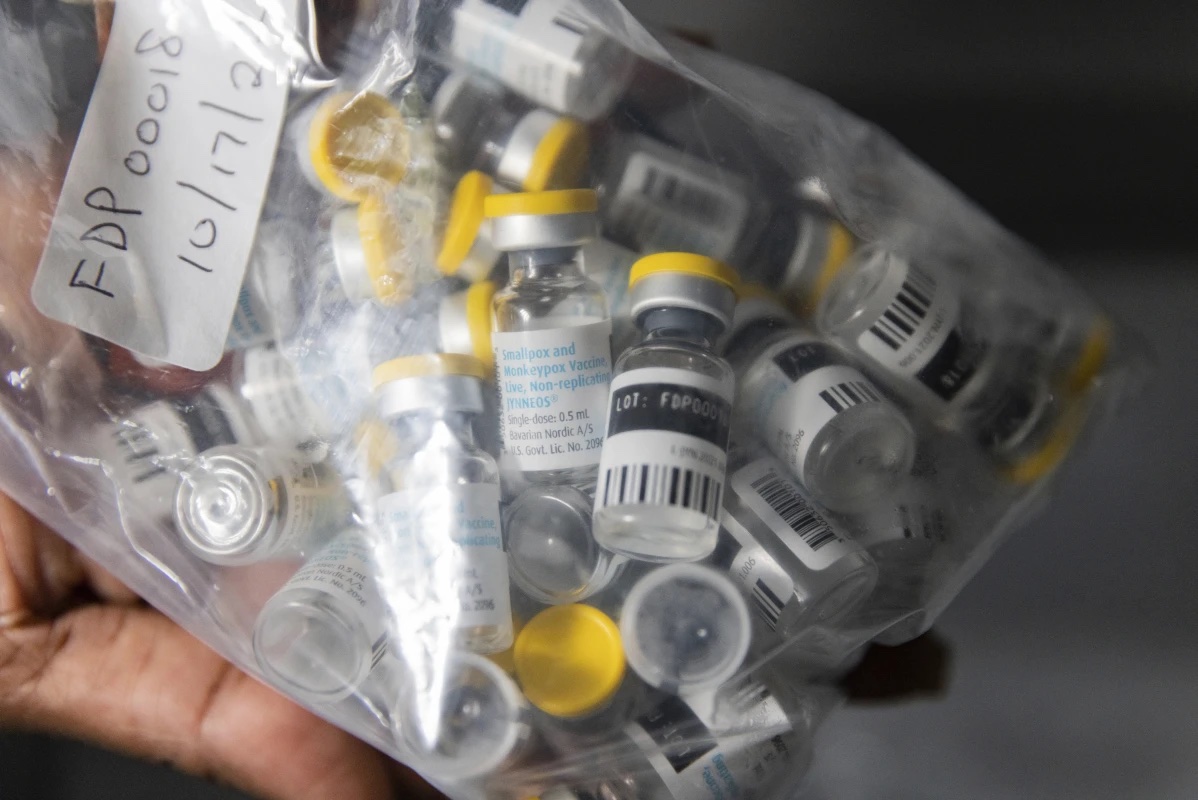KINSHASA, Congo (AP) — As Congo copes with its biggest outbreak of mpox, scientists warn discrimination against gay and bisexual men on the continent could make it worse.

In November, the World Health Organization reported that mpox, also known as monkeypox, was being spread via sex in Congo for the first time. That is a significant departure from previous flare-ups, where the virus mainly sickened people in contact with diseased animals.
Mpox has been in parts of central and west Africa for decades, but it was not until 2022 that it was documented to spread via sex; most of the 91,00 people infected in approximately 100 countries that year were gay or bisexual men.
In Africa, unwillingness to report symptoms could drive the outbreak underground, said Dimie Ogoina, an infectious diseases specialist at the Niger Delta University in Nigeria.
“It could be that because homosexuality is prohibited by law in most parts of Africa, many people do not come forward if they think they have been infected with mpox,” Ogoina said.
WHO officials said they identified the first sexually transmitted cases of the more severe type of mpox in Congo last spring, shortly after a resident of Belgium who “identified himself as a man who has sexual relations with other men” arrived in Kinshasa, the Congolese capital. The U.N. health agency said five other people who had sexual contact with the man later became infected with mpox.
“We have been underestimating the potential of sexual transmission of mpox in Africa for years,” said Ogoina, who with his colleagues, first reported in 2019 that mpox might be spreading via sex.
Gaps in monitoring make it a challenge to estimate how many mpox cases are linked to sex, he said. Still, most cases of mpox in Nigeria involve people with no known contact with animals, he noted.
In Congo, there have been about 13,350 suspected cases of mpox, including 607 deaths through the end of November with only about 10% of cases confirmed by laboratories. But how many infections were spread through sex isn’t clear. WHO said about 70% of cases are in children under 15.
During a recent trip to Congo to assess the outbreak, WHO officials found there was “no awareness” among health workers that mpox could be spread sexually, resulting in missed cases.
WHO said health authorities had confirmed sexual transmission of mpox “between male partners and simultaneously through heterosexual transmission” in different parts of the country.
Mpox typically causes symptoms including a fever, skin rash, lesions and muscle soreness for up to one month. It is spread via close contact and most people recover without needing medical treatment.
During the 2022 major international outbreak, mass vaccination programs were undertaken in some countries, including Canada, Britain and the U.S., and targeted those at highest risk — gay and bisexual men. But experts say that’s not likely to work in Africa for several reasons, including the stigma against gay communities.
“I don’t think we’ll see the same clamoring for vaccines in Africa that we saw in the West last year,” said Dr. Boghuma Titanji, an assistant professor of medicine in infectious diseases at Emory University School of Medicine in Atlanta.
She said that the gay and bisexual men most at risk of mpox might be fearful of coming forward in a broad immunization program. Countries should work on ways to give the shots —if available — in a way that wouldn’t stigmatize them, she said.
Dr. Jean-Jacques Muyemba, general director of Congo’s National Institute of Biomedical Research, said two provinces in Congo had reported clusters of mpox spread through sex, a concerning development.
There’s no licensed vaccine in Congo, and it would be hard to get enough shots for any large-scale program, Muyemba said. The country is trying to get a Japanese mpox vaccine, but regulatory issues are complicating the situation, he said.





